Mumbai: Merenla Imsong had just two days to convince the world she was a drug addict. She shut herself in, eyes glued to documentaries on addiction, absorbing every nuance of despair. By the time she walked into the audition for Paatal Lok Season 2, she was exhausted —but when the camera rolled, she became Rose Lizo, her breakout role.
Like most major auditions, the script was kept tightly under wraps until the last couple of days. But in that short time, the actor from Nagaland had already mastered the character.
“She tested for the scene at the beginning of episode 4, when Rose buys some drugs from a peddler and she was fantastic in it,” said Sudip Sharma, creator of the show, adding that cinematographer Avinash Arun Dhaware was equally impressed. “There was so much desperation and yet poise in her performance that Avinash and I just finished watching the audition and looked at each other with a smile, for we knew we had found Rose.”
Like the ‘villain’ Hathoda Tyagi (Abhishek Banerjee) in Paatal Lok Season 1, Rose Lizo has very little dialogue. Everything rests on physicality and expressions, yet she manages to speak volumes.
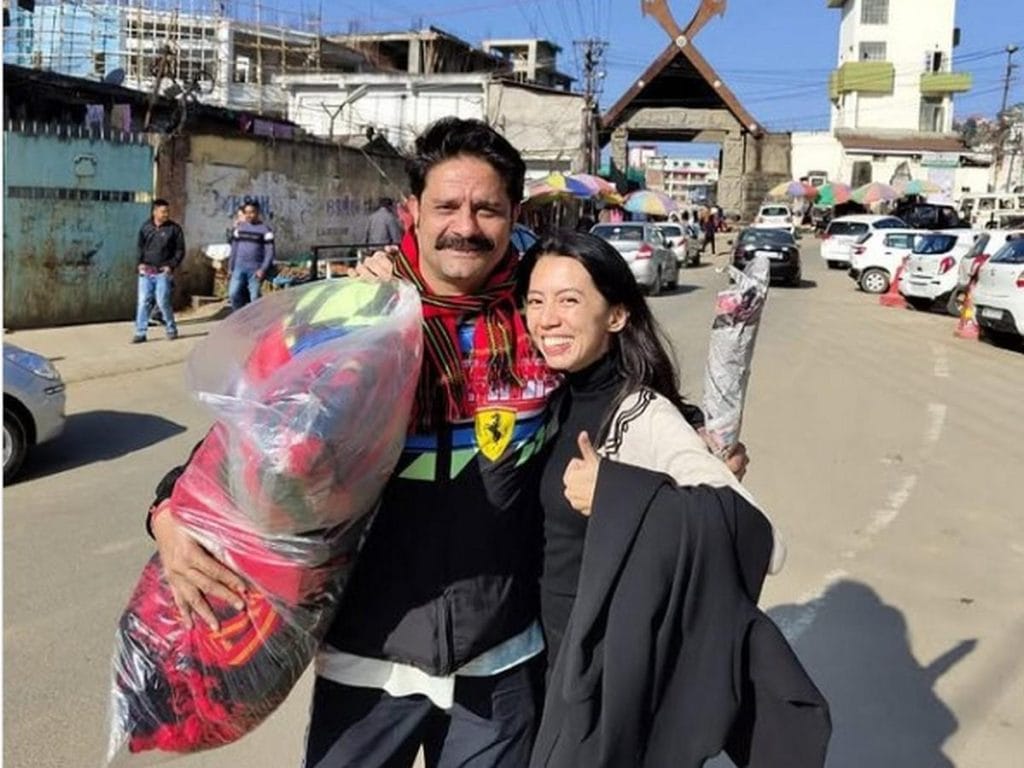
For years, Bollywood and streaming platforms boxed Northeastern actors into blink-and-miss-it parts. Imsong, who studied zoology in Delhi University, spent years doing uncredited roles as a “blurry Japanese tourist,” a “Chinese woman in the background,” a “Northeastern waiter.” With so few avenues for actors who looked and sounded different from the mainstream, she decided to carve out her own space. She started making satirical Instagram videos about the everyday racism Northeasterners face. Her sharp comic timing made her a talking point, but viral fame alone wasn’t enough to break into the industry.
That changed with Axone (2019), a comedy-drama about a group of Northeastern students. Then came Paatal Lok—and suddenly, she was impossible to ignore. Breaking through racism and typecasting, she has become one of the most recognisable actors from the Northeast on Indian screens.
I used to follow her on Instagram and loved her videos. I was confident she was going to play some role in the show. We did two scenes. One was where she meets the drug peddler and has to [perform a sexual act]. I was enacting it with her. The other is when Rose wakes up after taking drugs… She aced that audition.
-Nikita Grover, casting director
But it was a hard grind to get to this point. Even for Paatal Lok, shooting wrapped up in 2022, but it took another two years to be released on Prime Video.
When I made the decision to act, I borrowed money from friends and eventually moved to Mumbai. But even that ran out. So I got myself a job at a clothing studio and ate a lot of Wibs bread at that time,” said Imsong, rustling up a meal of dal, rice, and aloo-matar in her Versova apartment, joking that her cooking might dent her reputation.
Off-screen, she’s all quick wit and deadpan humour. But as an actor, she’s methodical and serious.
“Watching the documentaries made me have empathy for Rose. I realised it’s not about the physical transformation or the outer appearance. It’s about understanding their story, their pain. I realised I wasn’t supposed to feel pity for her because she’s not weak. She’s strong, she’s fighting every day. And that’s what I wanted to bring to the character,” she said.
In Paatal Lok, Rose Lizo is a drug addict suspected of killing a high-profile Naga leader and entrepreneur, hunted by both the police and the criminals who want her dead. Her role’s quiet power has struck a chord.
“Merenla Imsong’s Rose is hauntingly tragic,” noted a review of Paatal Lok Season 2 in The Pioneer, while Abu Dhabi-based The National said she “excels in her role.” On social media, the praise has been pouring in. “Your acting was fabulous,” wrote one Instagram user. “Wish u had more screen time and dialogues,” said another.
The performance is so convincing that people DM her to say “get well soon” or warn her to stay away from drugs.
“Nobody has ever written to me like I am the character I played before, and it seemed like a huge compliment,” said Imsong, laughing. “But it took so long for the show to come out that I would joke that I hoped I won’t enter menopause before the show drops.”
Also Read: ‘A female director doesn’t mean no male gaze’—Kani Kusruti is so much more than All We Imagine
Actor, writer, comedian
Merenla Imsong’s one-bedroom apartment in Mumbai’s Versova is filled with houseplants and books by Somerset Maugham and Roald Dahl. It’s also the set for her YouTube and Instagram videos, where she riffs on everything from perennially late friends to Northeasterners being mistaken for South Koreans. Occasionally, she sneaks in branded content, but it’s the satire that keeps her audience hooked.
Some of her reels have millions of views. Her YouTube channel has 79.4k subscribers, while her Instagram following stands at 1.34 lakh.

For casting director Nikita Grover, Imsong’s social media was a cue that she’d have the screen presence for Paatal Lok.
“I used to follow her on Instagram and loved her videos. I was confident she was going to play some role in the show,” said Grover. “We did two scenes. One was where she meets the drug peddler and has to [perform a sexual act] because she has no money. I was enacting it with her. The other is when Rose wakes up after taking drugs, and she’s hungry, looking for food. She aced that audition. We were worried because there were no dialogues—it was just performance.”
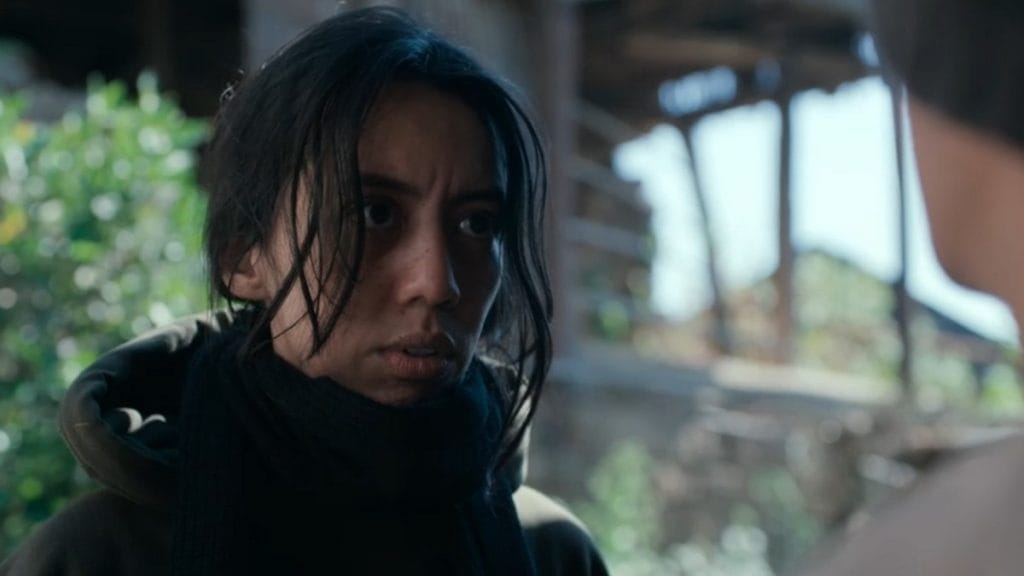
After that, the team auditioned one more actor, but their hearts were already set on Imsong.
“Merenla just killed it,” said Grover.
Despite the serious content, Imsong kept things light on set.
“Every time Merenla is on set, there’s a different vibe. You want to be around her—she’ll make you laugh. People are always smiling and giggling,” added Grover.
‘I just finished watching your show, and my blood pressure has gone up. Your Nepali friend is killing everyone,’ Imsong’s mother told her, referring to the trigger-happy character Daniel Lecho, played by Kathmandu-based actor Prashant Tamang
Imsong is often given to self-deprecating jokes. Ahead of a potluck in the evening, she ordered some pork noodles. “I don’t want to subject people to my food,” she said.
She is a skilled writer as well. In November last year, she performed at Spoken Fest in Shillong alongside actors Amol Parashar and Trinetra Haldar, delivering a poignant piece about her relationship with her father. She also has writing room credits for TVF’s weekly show MitronPolitan and one episode of Sab Parivarik Hai. Currently, she’s waiting for an Indie film script she co-wrote with a friend to be picked up. She has also written a short story—a dark comedy— and is collaborating with an artist friend to make it into an illustrated story. But acting is where her heart lies.
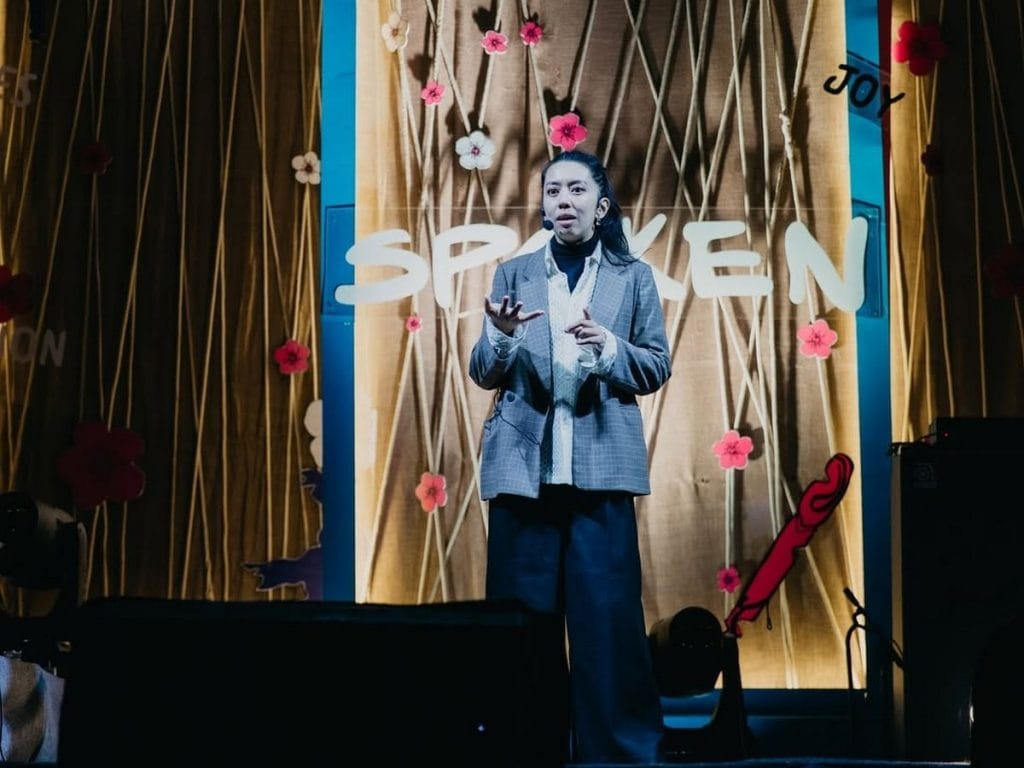
“I would like to identify as an actor and do more roles,” said Imsong. She keeps her scripts, including Paatal Lok, in a drawer. One page, where Rose meets Raghu (Shailesh Kumar)—a man who steps in to help her—is carefully marked up with a pink highlighter.
A role that hit home—‘gave my mother BP’
Rose Lizo sits on the side of a secluded Delhi road, a car full of men staring her down. It’s enough to bring shivers down the spine of anyone who knows how dangerous the city can be. Later, when she tries to buy drugs and offers the dealer a sexual favour, it evokes sympathy rather than disgust.
“She brought dignity and poise and vulnerability and strength, all at the same time. In real life, she is nothing like that: it’s difficult to get her to stop once she starts. And that’s the hallmark of a talented actor for me—to be able to perform roles far away from their real-life personality,” said Sharma.
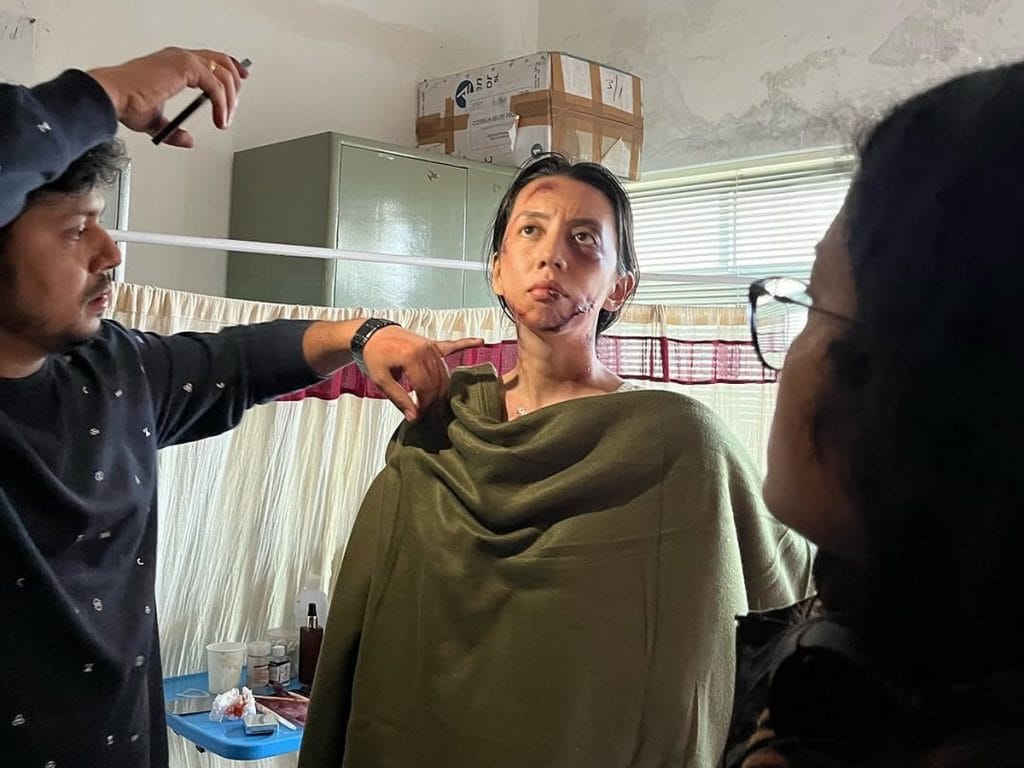
From the start, he wanted Rose to be voiceless—a reflection of how people like her are both unseen and dismissed.
“The hope was that through the eventual learning of her story we’d then get to see her for who she is and how wrong we were in judging her just because she looked nothing like one of us,” he added.
The reactions to the season have been varied—some were moved, others praised its layered portrayal of the Northeast. But Imsong’s mother was shaken.
“I just finished watching your show, and my blood pressure has gone up. Your Nepali friend is killing everyone,” she told Imsong, referring to the trigger-happy character Daniel Lecho, played by Kathmandu-based actor Prashant Tamang.
She had visited the Paatal Lok set when the unit was filming in Nagaland and watched as cops Meghna Barua (Tillotama Shome) and Hathiram (Jaideep Ahlawat) tried to get Rose out of a hospital while being pursued.
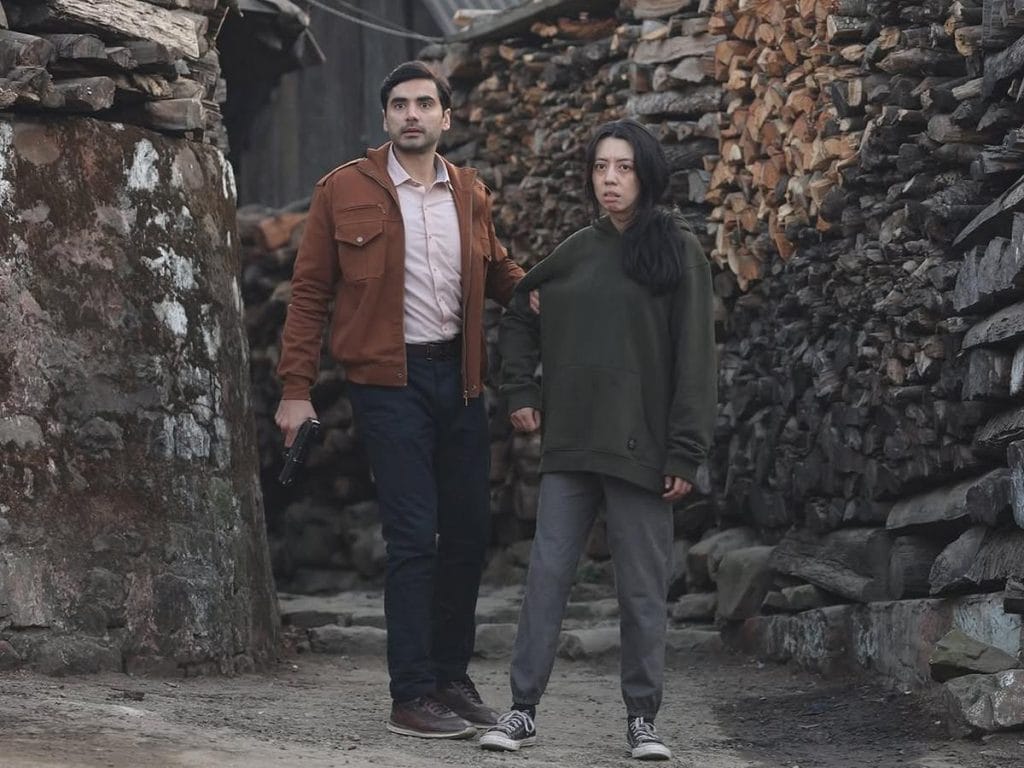
“But I really don’t like this. I am not enjoying this,” she said, disturbed by the sight of her daughter’s battered, bruised face.
Despite the stress, Imsong’s parents got an Amazon Prime membership just to watch the show on their phones after struggling to sync the app to their TV.
“My father watched the whole series in one go, afraid that it might stop playing if he accidentally pressed some button and wouldn’t know how to restart it,” Imsong said with a laugh.
I am very thankful to the South Korean entertainment industry. Even though I have not really watched K-dramas, they have helped familiarise people with faces like ours
-Merenla Imsong
She shares a close bond with her father, who once protested in Shillong against the film Yeh Gulistan Hamara. The film, directed by Atmaram and starring Dev Anand and Sharmila Tagore, depicts a tribal community living on the border with China. One of its songs, Mera Naam Ao, offended the Ao sub-tribe of Nagaland, leading to protests.
That streak of resistance runs through Imsong too—from her merciless Instagram satire to her decision to move to Mumbai and become an actor. Her parents never tried to hold her back.
“I have grown up in a non-traditional family, with non-judgmental parents, and that is why I am still here, despite all the struggles,” said Imsong. “Parents pressure their children to come back, get married, get a stable job. That never happened to me.”
Zoology student to ‘Chinese secretary’
Imsong has spent nearly half her life away from Nagaland, but her kitchen is always stocked with a staple of her Ao and Angami heritage—fermented non-vegetarian pickle.
Born in Duliajan and raised in Kohima, she seemed set to follow the well-trodden path of many middle-class Northeastern families—Delhi University for higher studies, then government exam preparation.
Then came a trip to England for a cousin’s wedding—and a moment of clarity.
“When my uncle and aunt asked about my future plans, I told them, rather unconvincingly, that I was preparing for a government job. They asked me to be real with myself and pursue entertainment,” said Imsong, who completed both her graduation and postgraduation in zoology from Delhi University.
It was the wake-up call she needed. She dropped the idea of government exams and packed her bags for Mumbai.
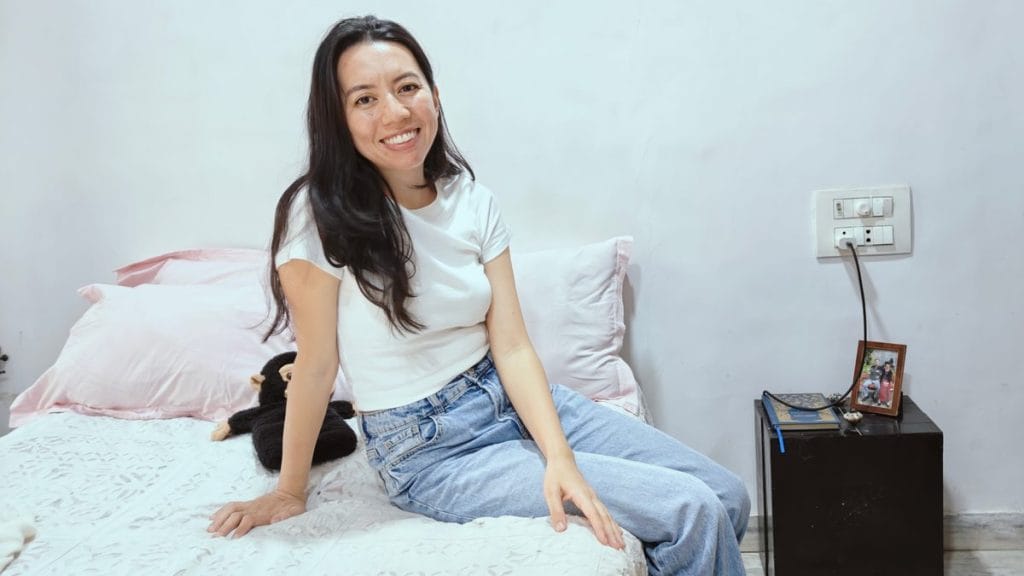
She arrived in the city in 2013 with dreams of acting, and a lot of confusing advice.
“Some said being a model is the way to become an actress, while others told me to do ads,” she recalled.
Instead, she found herself broke, relying on odd jobs and help from friends.
In between, she tried her hand at acting. But the gigs were few and far between, and sometimes, outright racist.
In one TV show, she was cast as a Dubai businessman’s Chinese secretary. The makers did not care that she knew no Mandarin and were content to have her speak gibberish as long as it sounded convincing. She tried to learn a few Mandarin words anyway, just to do justice to the role. But back then, political correctness and representation weren’t on anyone’s radar.
“I get cast in roles that specifically require a Northeastern character, and only in a few instances that hasn’t happened. It is how it is, and I am not even complaining, just stating the reality,” said Imsong.
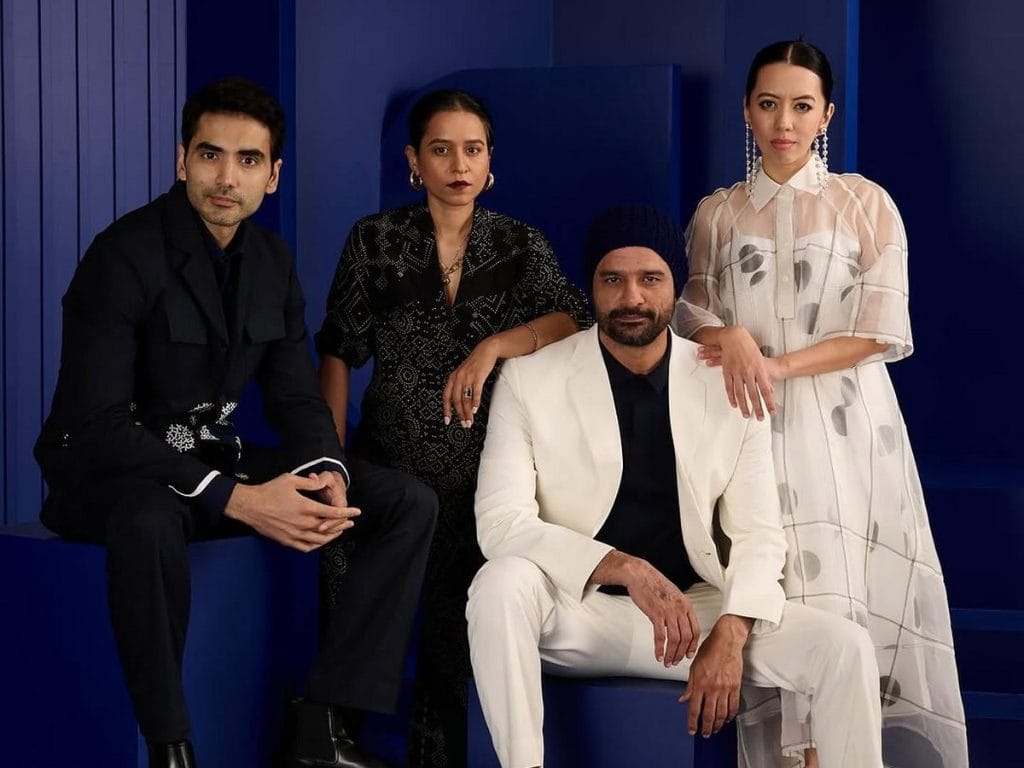
Things are changing, but slowly. The rise of OTT platforms has introduced Indian audiences to Japanese anime and K-dramas, making them more aware of different Asian cultures and languages.
“I am very thankful to the South Korean entertainment industry. Even though I have not really watched K-dramas, they have helped familiarise people with faces like ours,” she said.
While Northeastern representation in Indian entertainment is still finding its footing, the door is opening.
For Imsong, a turning point came in 2014 when she assisted Jim Sarbh in his play Bull and met director Ratnabali Bhattacharjee, who later cast her in a one-person play Akhuni (2016). The schedule was punishing—travelling across the city daily for a full-time job and then rehearsing in the evenings. The exhaustion caught up with her. The night before the performance, she said she nearly passed out.
Around 2019, she finally quit her job to focus entirely on acting. The risk paid off. She bagged roles in Axone (2019) and Call My Agent: Bollywood (2021).
“They tested me thrice for the main part in Axone and then told me it didn’t work out—but there was a smaller role. I was happy that I got the part,” Imsong recalled.
It would open new avenues, leading to her clearing the audition and being locked in for Paatal Lok within a week
“For Paatal Lok, I started jumping and squealing while the casting director was still on the phone. Then I hung up and cried. That’s the first time I cried after getting a role,” she said.
Also Read: Where is Northeast in Bollywood? India is finally growing an appetite
A fresh space
Northeastern characters in Bollywood were sidekicks or stereotypes. Then came Nicholas Kharkongor’s comedy-drama Axone, the first mainstream Hindi film centred on the lives of Northeasterners.
The movie premiered at the BFI London Film Festival and made its India debut at the Mumbai Film Festival (MAMI), earning a standing ovation. It follows a group of Northeasterners in South Delhi’s Humanyunpur as they try to cook pork with axone— a strong-smelling Naga delicacy made with fermented soybean—while navigating neighbourhood tensions, a wedding, and casual racism.
Imsong played Balamon, one of the group’s friends, and had just a single dialogue. But it was an impactful one. When a neighbour spews racist remarks, saying that all Northeasterners look the same and that the women have different men over every night, Balamon hits back. Hands on her hips, she angrily asks him how he can tell different men come over every night if he thinks they all look the same.
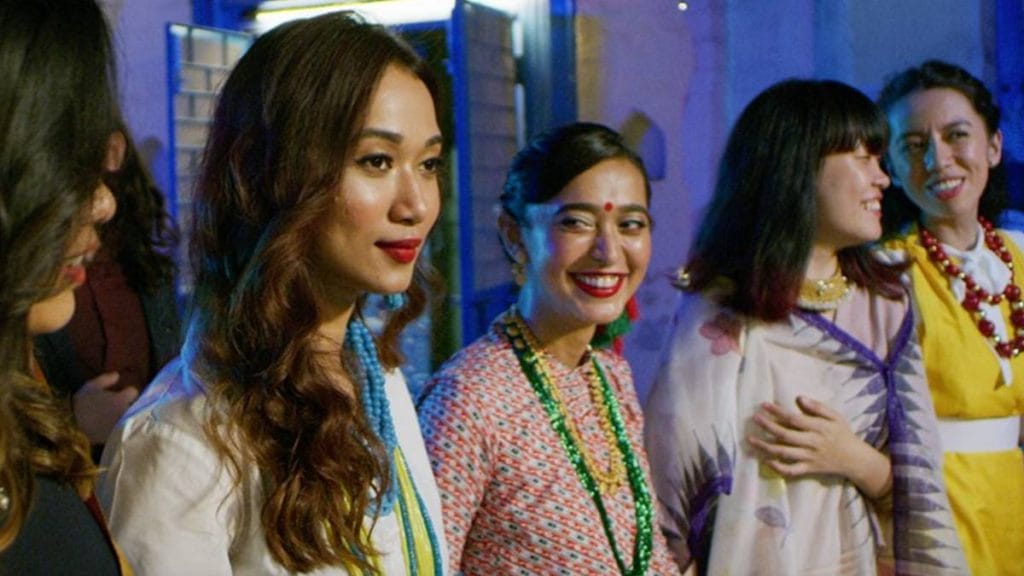
Shooting for the movie had its own challenges, with the cast and crew squeezing into a small set in Humayunpur’s cramped lanes.
“We were in the basement of a small building with no ventilation, and the small air conditioner barely worked. There were about 30 people in that cramped space, and I landed up in hospital with sheer dehydration,” said Imsong.
After Axone, she bagged a role in her friend Amrita Bagchi’s short film Succulent (2021), a psychological drama with an eerie, futuristic edge.
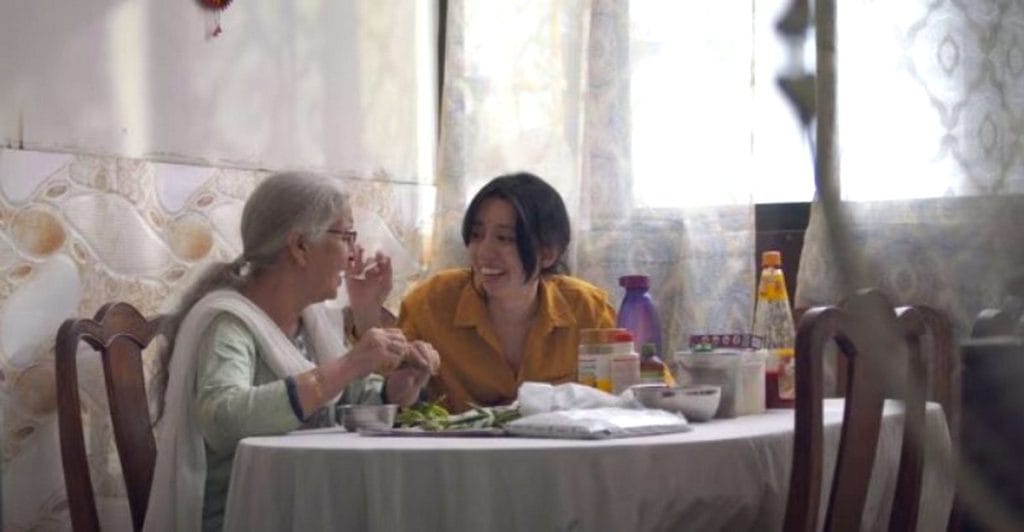
She played M, a hired companion working for a company that provides stand-ins for absent family members—whether a Jain daughter or a Kannadiga Brahmin sister. The only real relationships M has are with her 42 houseplants, especially her succulents, each of which she has named. It was a complex role, balancing rebellion, vulnerability, and loneliness.
The film won the Audience Award for Best First Film at the 10th Dharamshala International Film Festival as well as the Grand Jury Prize at the Indian Film Festival of LA. And it changed how Imsong approached acting.
Rising star with ‘Doob Doob’ moments
By default, Imsong says she tends to ham it up on camera. In an interview, she credited Succulent with teaching her restraint and to “calm down” as an actor.
“[Bagchi] taught me to internalise a lot of stuff, which was so important for me… In Axone, I clearly had no idea what I was doing. I was overacting, doing ‘comedy drunk,’ and caricaturing myself,” she said.
By Paatal Lok, that over-the-top energy was gone. Her pared-down performance took even her closest friends by surprise.
Lin Laishram, her Axone co-star and now one of her closest friends, said that at first, she wasn’t sure how suited Imsong would be to a role like Rose Lizo.
“When Meren called me to tell me about the audition, I wondered if it would be challenging for her to play a role like that. But the amount of research and hard work she did, and now the final output, makes me very proud,” said Laishram.
That element of surprise is a common theme among her friends. Imsong is the quintessential class clown. Her clumsiness is legendary. She even has a habit of dramatically fainting due to low blood pressure.
“When I ponder the rollercoaster life journey of Miss Imsong, it feels like flipping through Tinkle comics. She’s like Suppandi, aspiring to be Kalia the crow, but often landing in Doob Doob territory,” said Lipok Echa, one of Imsong’s oldest friends. “Maybe she channelled all that chaos into her role in Paatal Lok 2, which explains her brilliance as Rose Lizo.”
(Edited by Asavari Singh)







“She started making satirical Instagram videos about the everyday racism Northeasterners face.”
Did Ms. Imsong ever speak out about the racism that mainland Indians face every single day in the tribal majority Northeastern states like Nagaland? Did she ever focus on the egregious violence and intimidation that non-tribals are subjected to every day?
The fact is that in her home state of Nagaland, every non-tribal is forced to pay taxes to the terrorist organization NSCN. Does she ever make Instagram reels on that? I guess she does not.
In fact, she would not even acknowledge the absolutely hostile environment that non-tribals live and work in.